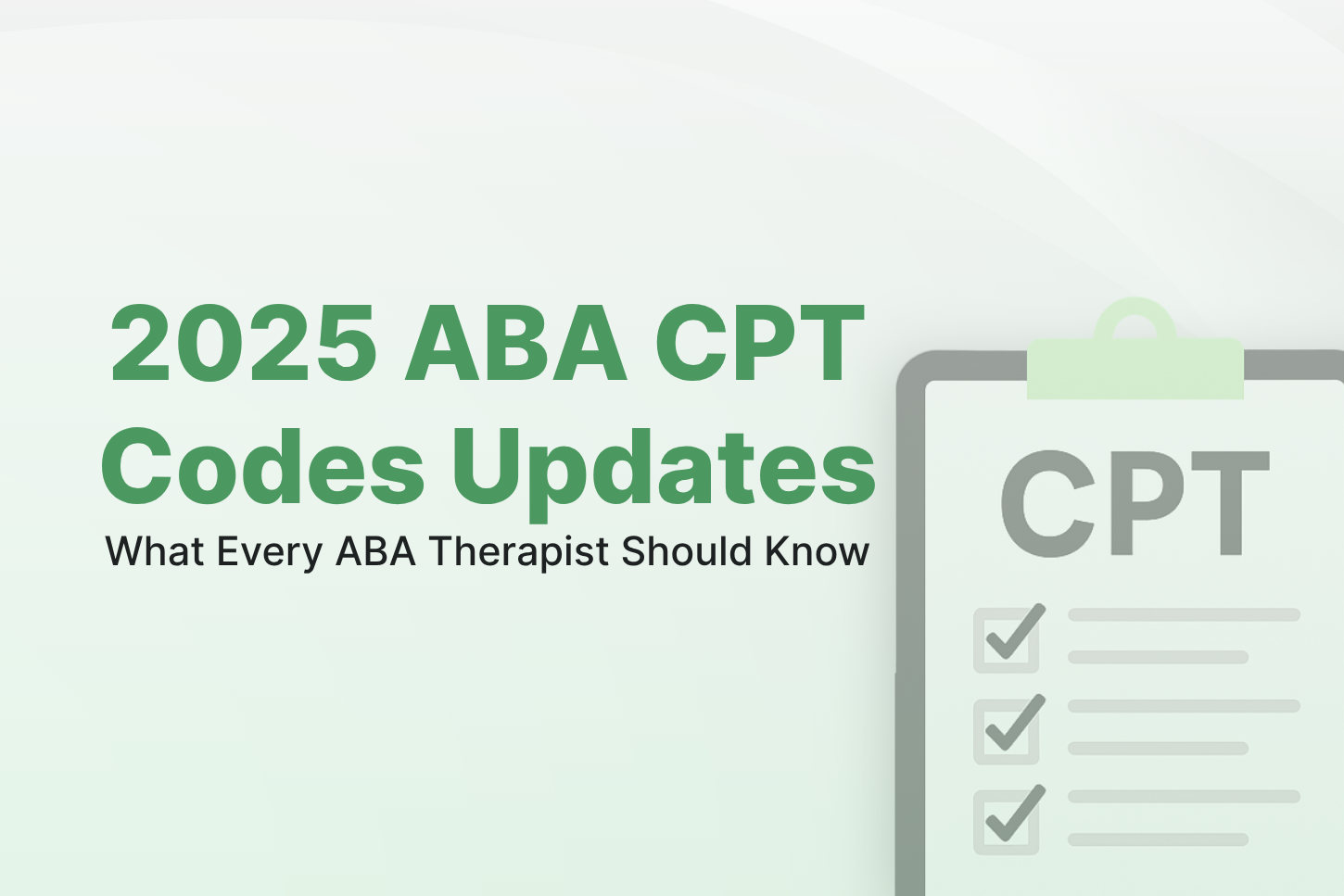How can ABA practices ensure Compliance and Accreditation

A one-stop comprehensive guide to streamlining your ABA practice
ABA compliance is bound with several intricacies and challenges. From handling regulatory hurdles to complying with insurance requirements, these intricacies and challenges overwhelm healthcare professionals, thereby creating bottlenecks in quality patient care. Thus, combating them becomes the need of the hour to maintain the highest standards of care and to meet the regulatory requirements.
This comprehensive guide aims to demystify ABA compliance and accreditation, discusses best practices to achieve them, and uncovers emerging trends and future directions in the compliance and accreditation landscape.
Importance of Compliance in ABA Therapy
Ensuring compliance in ABA therapy is essential, given the stringent ABA therapy regulations and requirements governing the field. These regulations and compliance requirements ensure that therapy practices adhere to established standards, protocols, and ethical guidelines. Following ABA compliance requirements will safeguard the well-being of clients by promoting safe and effective therapeutic interventions.
It also fosters transparency and accountability within therapy settings, enhancing trust and confidence among clients and stakeholders. Furthermore, compliance with ABA regulations helps therapy providers avoid legal ramifications and maintain their professional reputation. By prioritizing ABA compliance requirements, therapy practitioners demonstrate their commitment to delivering high-quality services that prioritize the needs and welfare of their clients.
Key Standards and Requirements for ABA Accreditation
The Behavior Analyst Certification Board (BACB) and regulatory bodies at the state level are responsible for setting the accreditation standards for ABA practices in the USA. These standards play a significant role in establishing ABA therapy regulations, ensuring adherence to ethical guidelines, quality of care, and competency among practitioners.
Some of the key standards and accreditation requirements to be followed by ABA practices are mentioned below:
- Adhere to ethical guidelines outlined by the BACB, to ensure client welfare and professional conduct.
- Demonstrate proficiency in ABA principles through certification and ongoing professional development.
- Implement structured supervision practices to support staff training and development.
- Develop individualized treatment plans based on comprehensive assessments and client needs.
- Utilize systematic data collection methods to monitor progress and to make informed treatment decisions.
- Ensure staff members meet certification and licensing requirements, including appropriate education and training.
- Implement procedures to evaluate and improve the effectiveness and efficiency of ABA services.
- Safeguard client confidentiality, autonomy, and dignity throughout the therapy process.
- Adhere to state and federal requirements governing ABA therapy regulations related to practice.
- Record and maintain clear documentation and reports that convey including documentation and reporting requirements.
Navigating the Accreditation Process for ABA Providers
ABA service providers must navigate the accreditation process as it provides credibility and ensures that the practice complies with ABA therapy regulations. It also demonstrates that the practice is committed to excellence, fostering trust among clients and stakeholders.
Some of the effective ways to navigate the accreditation process are:
- Invest in comprehensive staff training on accreditation requirements.
- Utilize technology for streamlined documentation and record-keeping.
- Implement regular audits and quality assurance measures.
- Foster a culture of transparency, accountability, and ethical practice.
- Seek guidance from industry peers, professional associations, and accreditation experts.
- Develop tailored policies and procedures to address specific accreditation standards.
- Prioritize open communication and collaboration among stakeholders.
- Stay abreast of regulatory changes and adapt practices accordingly.
Utilizing Technology for ABA Compliance and Accreditation
Utilizing technology is crucial for ABA providers to streamline compliance and accreditation processes efficiently. Specialized software solutions can automate documentation, data collection, and reporting, reducing administrative burdens and ensuring accuracy. These platforms offer features tailored to ABA therapy, such as treatment planning modules and progress tracking tools, facilitating adherence to accreditation standards.
Also, technology enables real-time communication and collaboration among team members, enhancing coordination and accountability. By harnessing the power of technology, ABA providers can optimize workflow efficiency, improve client outcomes, and navigate the accreditation process with greater ease and confidence.
Emerging Trends and Future Directions in ABA Compliance and Accreditation
Emerging trends and future directions in ABA compliance and accreditation are shaping the landscape of therapy services, driving innovation, and enhancing quality assurance.
One notable trend is the increasing integration of technology solutions, such as telehealth platforms and data analytics tools, to streamline compliance processes and improve client outcomes. This necessitated updated guidelines and standards to ensure quality and ethical care in virtual environments.
There is also a shift towards outcome-based accreditation models, that focus on measurable indicators of client progress and therapy effectiveness. This trend encourages providers to adopt evidence-based practices and outcome measurement tools to demonstrate the impact of ABA therapy interventions.
There is also a massive demand for open and secure communication among the parties involved in ABA therapy. This is more likely to improve in the future as it is proven to enhance the overall well-being of clients. Thus, the impact of technology in the form of therapy practice management software helps to maintain seamless client communication, provide a remote therapy environment, and manage documentation and reports without compromising on privacy will be a game changer in the ABA therapy space.
Looking for software that can transform your ABA therapy practice? Explore TherapyPM – The privacy-focused therapy practice management software. Document outcomes, maintain clear client records, stay compliant with the regulations, and elevate your practice. Contact us to know more.
Conclusion
Navigating ABA compliance and accreditation is vital for maintaining high standards of care and meeting regulatory requirements. It is difficult for practices to meet these requirements with outdated practices and it can significantly impact growth. Therefore, it is necessary to navigate the challenges by leveraging technology in the form of therapy practice management software. This can ultimately benefit the practices to streamline services, gain and retain clients, and at the same time ensure that ABA compliance and accreditation requirements are adequately met.
Related Posts

The Hidden Struggles of Insurance Verification: How Does TherapyPM Simplify VOB for Therapists?
Verification of Benefits (VOB) is essential for therapy practices to ensure that providers understand patient and insurance payment responsibilities.

2025 ABA CPT Codes Updates: What Every ABA Therapist Should Know?
Stay ahead of ABA CPT Code Updates 2025. Avoid denials, boost revenue & ensure compliance. Learn what’s new—read the full guide for therapists now!

Stop Chasing Payments: How E-Remittance Slashes Therapy Billing Errors by 90%
Manual billing processes in therapy practices often lead to errors, payment delays, and burnout. That’s where E-Remittance changes the game.